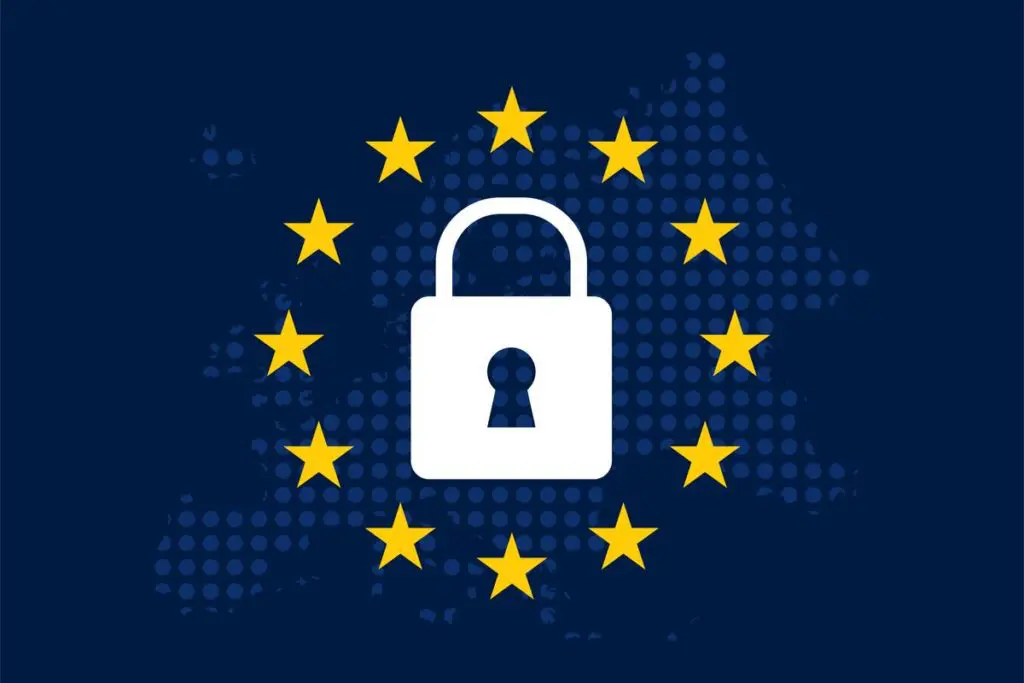The General Data Protection Regulation (GDPR) has fundamentally changed the way businesses handle and protect personal data. Implemented in 2018, GDPR has had a significant impact on organizations across all industries, forcing them to reevaluate their data protection practices and ensure compliance with the new regulations. Navigating GDPR regulations can be complex and overwhelming for businesses, but it is essential to understand and abide by these rules to avoid hefty fines and reputational damage. This comprehensive guide aims to shed light on GDPR regulations, providing businesses with the knowledge and tools necessary to navigate this evolving landscape successfully.

- GDPR regulations
What is GDPR?
GDPR regulations is a set of regulations implemented by the European Union (EU) to protect the privacy and personal data of EU citizens. It was designed to give individuals more control over their personal information while also placing responsibilities on businesses that collect, process, and store this data.
GDPR applies to any business that operates within the EU or handles the personal data of EU residents, regardless of where the business is located. This means that even if your business is based outside the EU, if you collect or process data of EU citizens, you must comply with GDPR regulations.
The primary principles of GDPR include transparency, consent, data minimization, accuracy, integrity, and confidentiality. Businesses must ensure they have lawful grounds for processing personal data, obtain clear and explicit consent from individuals, implement strong security measures, and provide individuals with access to their data and the ability to request its deletion.
Non-compliance with GDPR regulations can result in significant penalties, including fines of up to 4% of annual global turnover or €20 million, whichever is higher. Additionally, businesses may face reputational damage and a loss of customer trust if they fail to protect personal data adequately.
History of GDPR
Understanding the history of GDPR regulations is essential for businesses to grasp the full extent and significance of this regulation. The GDPR was officially adopted by the European Union (EU) on April 14, 2016, and it became enforceable on May 25, 2018.
The regulation was created in response to the rapid advancement of technology and the growing concerns regarding the privacy and security of personal data. With the increase in data breaches and the misuse of personal information, the need for data protection framework became evident.
The GDPR was designed to replace the Data Protection Directive 95/46/EC, which was implemented in 1995. While the previous directive laid the foundation for data protection, it was no longer sufficient to address the challenges posed by the digital age. The GDPR takes a more proactive approach to data protection, giving individuals more control over their personal data and holding businesses accountable for their data processing activities.
By understanding the history of the GDPR, businesses can appreciate the evolution of data protection laws and the motivations behind the current regulations. In the next section, we will delve deeper into the core obligations and responsibilities that businesses must fulfill under the GDPR.
what is the GDPR seven key principles that govern the processing of personal data?
Lawfulness, Fairness, and Transparency (LFT)
This principle emphasizes the need for processing personal data in a legal manner, ensuring fairness to the individuals involved. Organizations must be transparent about their data processing activities, providing clear and accessible information about how and why data is collected and processed. Overall, the LFT principle establishes the foundation for a trustworthy and accountable data processing framework, emphasizing adherence to the law, fairness in treatment, and transparency in communication with individuals whose data is being processed. It is through the implementation of these elements that organizations can build and maintain the trust of individuals and regulators alike.
Purpose Limitation
The Purpose Limitation principle dictates that organizations should specify the purposes for which personal data is collected and processed. Data should only be used for the purposes stated, and any further processing should align with those original intentions. Organizations are obligated to be explicit and transparent about why they are collecting personal data. This involves identifying the specific purposes for which the data is intended to be used. These purposes should be communicated to individuals when their data is collected, forming the basis of a lawful and fair processing
Data Minimisation
Data Minimization advocates for collecting only the personal data that is necessary for the intended purpose. Organizations are encouraged to limit the scope of data processing to reduce the risk of unauthorized access and misuse. Data Minimisation encourages organizations to carefully consider what information is truly necessary for the purpose they seek to achieve. Unnecessary or excessive data should be avoided, and only the minimum amount of personal data required to fulfill the specified purpose should be collected.
Accuracy
Accuracy requires organizations to ensure that personal data is kept up-to-date and accurate. Steps should be taken to rectify or erase inaccurate information promptly, promoting the reliability of the processed data.
Storage Limitation
The Storage Limitation principle emphasizes that personal data should be stored only for the time necessary to fulfill the purposes for which it was collected. After this period, data should be deleted or anonymized to prevent unnecessary retention. The Storage Limitation principle encourages organizations to adopt a conscientious and proactive approach to data management, promoting the responsible use of personal data by ensuring it is retained only for as long as necessary to fulfill its intended purpose.
Integrity and Confidentiality (Security)
Organizations are obligated to implement measures to safeguard personal data from unauthorized access, alteration, or disclosure. This involves maintaining the integrity and confidentiality of the processed data through secure storage and transmission. Integrity and Confidentiality require organizations to implement appropriate technical and organizational measures to ensure the security of personal data. This includes measures such as encryption, access controls, and regular security assessments to protect against data breaches and unauthorized processing. Organizations must take steps to prevent unauthorized access to personal data. Access controls, strong authentication mechanisms, and restricted permissions help ensure that only authorized individuals have access to the data, reducing the risk of data breaches.
Accountability
Accountability is a fundamental principle requiring organizations to demonstrate compliance with the GDPR. This involves keeping records of data processing activities, conducting data protection impact assessments, and ensuring that personnel are trained to handle personal data responsibly. Accountability also extends to cooperating with data protection authorities and responding to individuals’ requests regarding their personal data.
What are the penalties for non-compliance with GDPR regulations ?
Non-compliance with GDPR regulations can result in significant fines. Depending on the severity of the violation, organizations may be fined up to 4% of their global annual turnover or €20 million, whichever is higher. Lesser violations can result in fines up to 2% of global annual turnover or €10 million.
The higher level fines are typically applied to more serious infringements, such as violations of the basic principles for processing personal data, infringement of data subjects’ rights, and transferring personal data to a recipient in a third country without adequate safeguards.
The specific factors that authorities consider when determining the fines include the nature, gravity, and duration of the infringement, the number of data subjects affected, the level of damage suffered by data subjects, the intentional or negligent character of the infringement, any actions taken by the data controller or processor to mitigate the damage, and adherence to relevant codes of conduct or approved certification mechanisms.
It’s important to note that supervisory authorities have the discretion to consider these factors and may impose fines accordingly. In addition to fines, authorities can also issue warnings, reprimands, and orders to comply with data protection rules. In some cases, organizations may face temporary or permanent bans on data processing activities.
What are the key requirements of GDPR?
The requirements of GDPR regulations can seem overwhelming, but by breaking them down into key areas, businesses can ensure they are on the right track to compliance. The following are the fundamental requirements that every business needs to be aware of:
Appointment of a Data Protection Officer (DPO): Under GDPR regulations, certain organizations are required to appoint a DPO who will serve as the main point of contact for all data protection matters within the organization. This is particularly important for businesses that process large amounts of personal data or engage in systematic monitoring.
Conducting Data Protection Impact Assessments (DPIAs): DPIAs are an essential part of complying with GDPR regulations. They involve identifying and assessing privacy risks associated with processing personal data and implementing measures to mitigate those risks.
Implementing Privacy by Design and Default: GDPR regulations emphasizes the importance of incorporating privacy and data protection throughout the entire lifecycle of data processing activities. This means that businesses need to adopt privacy-friendly practices, such as pseudonymization and data minimization, from the very beginning.
Developing Data Breach Response Procedures: In the event of a data breach, businesses must have clear and effective procedures in place to respond promptly and appropriately. This includes notifying affected individuals and the relevant supervisory authority within a specified timeframe.
By understanding and fulfilling these key requirements, businesses can establish a strong foundation for GDPR regulations compliance. In the next section, we will discuss practical strategies for implementing these requirements and ensuring ongoing compliance. Stay tuned for more valuable insights on navigating GDPR regulations.
Who does GDPR regulations apply to?
One of the first and most crucial steps in navigating GDPR regulations is understanding who the regulations apply to. GDPR has an extraterritorial scope, meaning it applies not only to businesses based in the European Union (EU), but also to organizations outside the EU that process the personal data of EU residents.
GDPR applies to all businesses that process personal data, regardless of their size or industry. This includes not only traditional businesses, but also non-profit organizations, government agencies, and even individual freelancers who handle personal data.
The key factor that determines whether GDPR regulations applies to an organization is if they process personal data of individuals who are in the EU. “Processing” includes collecting, storing, using, or transferring personal data. It doesn’t matter if the processing takes place within or outside the EU.
In the subsequent sections, we will explore in more detail the specific obligations and responsibilities that GDPR regulations imposes on businesses that fall within its scope. Understanding who GDPR applies to is the first step towards ensuring compliance and avoiding hefty fines. Stay tuned for more valuable insights on navigating GDPR regulations.
gdpr requirements
Complying with the General Data Protection Regulation (GDPR) is crucial for businesses of all sizes and industries. To ensure compliance, businesses must fulfill a range of obligations and responsibilities outlined in the regulation.
One key requirement is obtaining explicit consent from individuals for processing their personal data. This means that businesses must clearly explain why the data is being collected and how it will be used. Additionally, individuals have the right to withdraw their consent at any time.
Another important requirement is implementing proper data protection measures. Businesses must ensure that personal data is securely stored and protected from unauthorized access, loss, or destruction. This includes employing encryption techniques, regularly updating security systems, and providing staff training on data protection best practices.
Furthermore, businesses must appoint a Data Protection Officer (DPO) if they process large amounts of personal data or engage in systematic monitoring of individuals. The DPO is responsible for ensuring compliance with the GDPR and acting as a point of contact for data subjects and supervisory authorities.
Conclusion
In conclusion, navigating GDPR regulations can be complex, but it is essential for businesses to protect and respect the privacy of EU residents. By understanding the scope of the regulation, fulfilling obligations as data controllers or processors, and staying informed on future developments, businesses can successfully navigate the GDPR regulations landscape and build trust with their customers.








![Rapid7 Vulnerability Management]](https://meta-techs.net/wp-content/uploads/2025/03/What-is-Rapid7-Vulnerability-Management-1.webp)
